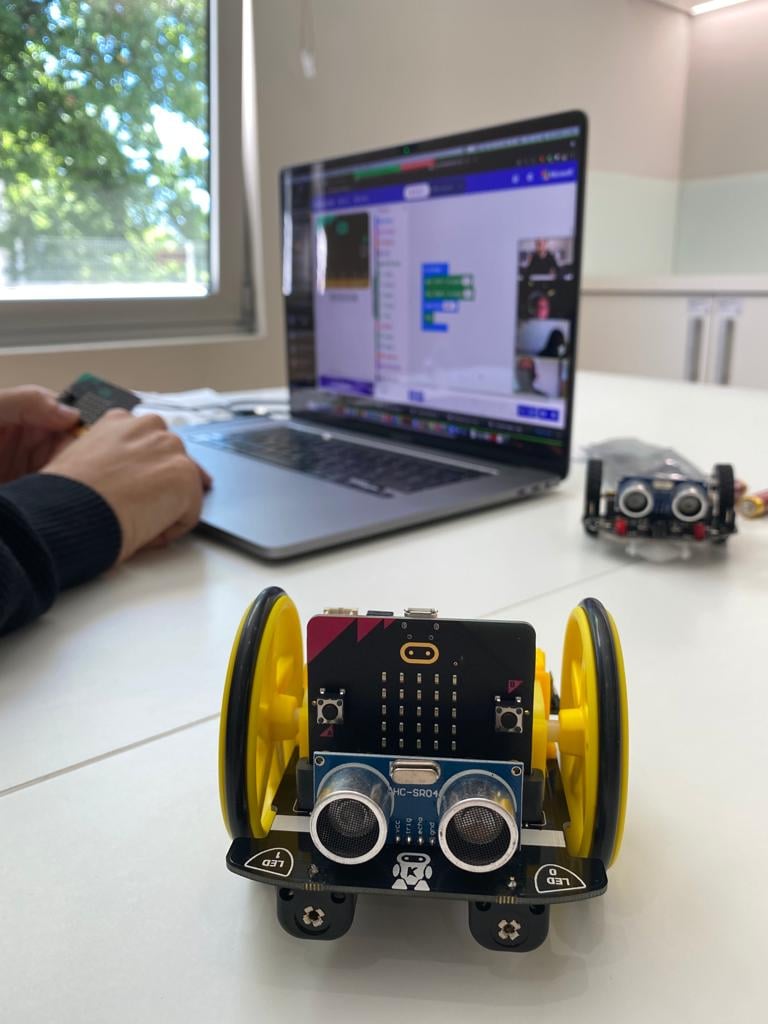The core project idea is to create a code learning-program based on microbits and astronomical topics. Micro:bit is a pocket programmable device that allows children and young people to learn how to program in a simple, playful and creative way. Its integrated sensors, which include buttons, compass, accelerometer, temperature, brightness, Bluetooth connection, LED matrix, allow the development of STEM projects, in which children and young people, almost autonomously and in groups, can learn by doing all phases of design, development, programming and execution. On the other hand, Astronomy is a very attractive topic to young students, contributing for their motivation and in promoting interest on science. Exploring the relationship of programming and astronomy gave us an opportunity to teach how science can be challenging and attractive to young people.
The target audience were local students and teachers abroad who can implement this same project in their respective countries. The implementation plan began by creating partnerships with schools that do not have access to this type of technological education. The chosen schools were Portuguese School of Mozambique and Portuguese School of East Timor, two Portuguese speaking countries. Working with those schools teachers, a learning roadmap was created to teach coding based on astronomy ideas. The replication of the project was made possible through online training of teachers on those schools. Now those teachers implement this learning guide with students of their own schools.
The project chose a mission to Mars as the main activity, with several phases in order to be replicated in a simplified way through micro:bit coding and its sensors.
Phase 1 – Astronaut training, reflexes training and reaction time
Phase 2 – Rocket launch, acceleration measurement
Phase 3 – Space trip, cabinet pressure, monitoring temperature and radiation, sound warnings
Phase 4 – Landing, distance to ground, contact
Phase 5 – Robot in Mars, robot control, temperature in Mars, climate station
The project produced the following deliverables and results:
– 7 online training sessions, which included 12 professors of different disciplines.
– 10 in-person sessions at the Science Center in order to develop and test our methodology and create the learning roadmap, which involved 150 students.
– Sending electronic materials necessary for this project to East Timor and Mozambique
– Development of a guide for code learning with astronomical ideas, which is available online.
– 1 dissemination activity, both in-person and online, for 20 international teachers from Greece, Estonia, Kenya, Malta and Portugal
The outcomes were:
– Increased knowledge of astronomy;
– Increased coding skills;
– Increased understanding of the technologies behind microbit, including the functioning of the sensors;
– Increased interest in science

